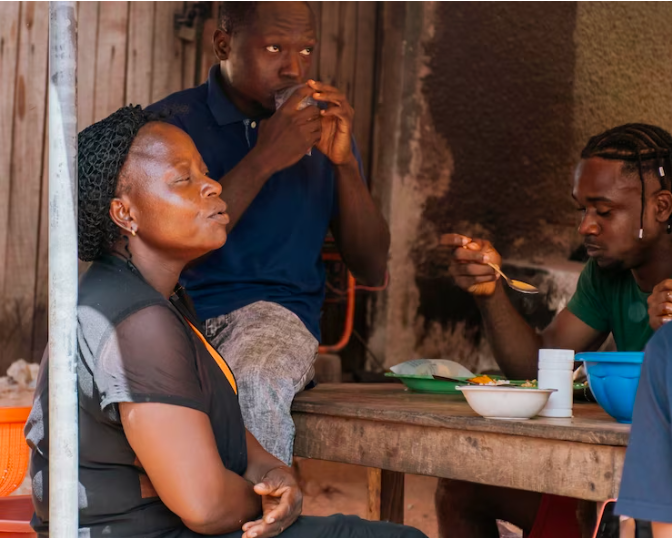Economy
Nigeria has the highest rates of income inequality in the world

Nigeria, the most populous country in Africa, is known for its abundant natural resources, diverse cultures, and growing economy. However, it is also grappling with a major economic issue: income inequality.
In fact, Nigeria has been consistently ranked as one of the countries with the highest rates of income inequality in the world.
Income inequality refers to the unequal distribution of wealth and income among individuals or groups within a society. When income is concentrated in the hands of a few, it can lead to social unrest, economic instability, and a range of other negative consequences. In Nigeria, income inequality is a major issue that has significant implications for the country’s development.
According to a report by Oxfam, the top 1% of Nigeria’s population controls 42.5% of the country’s wealth, while the bottom 50% only controls 2.8% of the wealth. This means that the majority of the population is struggling to make ends meet, while a small group of elites control the vast majority of the country’s resources.
There are a number of factors contributing to income inequality in Nigeria. One of the main causes is the country’s reliance on oil exports. While oil exports have brought in significant revenue for the country, the benefits have not been evenly distributed among the population. Many Nigerians have been left out of the economic boom, and as a result, income inequality has worsened.
Another factor is corruption in the political system. Nigeria has a history of corruption and embezzlement of public funds, which has led to the concentration of wealth in the hands of a few elites. This has also made it difficult for the government to provide basic services and infrastructure to the general population.
The lack of access to education, healthcare, and other basic services is another major contributor to income inequality in Nigeria. When people do not have access to these basic necessities, they are less likely to be able to break out of poverty and move up the economic ladder.
The high levels of income inequality in Nigeria have significant implications for the country’s social and political stability. Without addressing this issue, it will be difficult for Nigeria to achieve sustainable economic growth and development. Addressing income inequality will require a concerted effort from the government, civil society, and the private sector to create policies and programs that promote economic inclusion and reduce poverty.
Income inequality is a major issue in Nigeria that has significant implications for the country’s economic, social, and political development. Addressing this issue will require a long-term and concerted effort from all stakeholders to create a more inclusive and equitable society.
Nigeria is a country that is rich in natural resources, cultural diversity, and a growing economy. While poverty is a problem throughout Nigeria, some states are more affected than others. In this blog post, we will explore some of the poorest states in Nigeria and the reasons behind their economic struggles.
- Sokoto State
Sokoto State is located in the northwest region of Nigeria and is one of the poorest states in the country. The state has a high poverty rate of around 81.2%, which is largely due to its arid climate and lack of natural resources. Sokoto also has a low level of economic activity and has struggled to attract investment.
- Katsina State
Katsina State is also located in the northwest region of Nigeria and is one of the poorest states in the country. The state has a poverty rate of around 74.5%, which is largely due to its reliance on agriculture and lack of infrastructure. Katsina also faces a range of security challenges, including banditry and kidnappings, which have further hampered economic development.
- Adamawa State
Adamawa State is located in the northeast region of Nigeria and has a poverty rate of around 74.2%. The state has been impacted by the Boko Haram insurgency, which has displaced thousands of people and led to a decline in economic activity. Adamawa also faces challenges related to infrastructure and education, which have limited economic growth.
- Bauchi State
Bauchi State is located in the northeast region of Nigeria and has a poverty rate of around 73.2%. The state has struggled with a range of issues, including insecurity, poor infrastructure, and a lack of economic opportunities. Bauchi is also affected by the Boko Haram insurgency, which has disrupted economic activity and led to displacement.
- Gombe State
Gombe State is located in the northeast region of Nigeria and has a poverty rate of around 72.7%. The state has struggled with a lack of infrastructure, poor education, and a low level of economic activity. Gombe is also affected by the Boko Haram insurgency, which has had a significant impact on the state’s economy.
In conclusion, poverty is a major issue in Nigeria, and some states are more affected than others. The factors contributing to poverty in these states are complex and include issues related to infrastructure, education, and security. Addressing poverty in these states will require a concerted effort from the government, civil society, and the private sector to create policies and programs that promote economic development and reduce poverty.
